News
March 4, 2021 - The innovative Croatian museum revolution continues. Meet Museum of Senses, born in Croatia, but expanding globally through franchise and partnership.
As a child, I visited a lot of museums. They were places of awe, wonder and inspiration. Places where I learned things, but also places where I always had a feeling that they were really for adults.
Museums in the era when I grew up were places that you could look, admire and wonder.
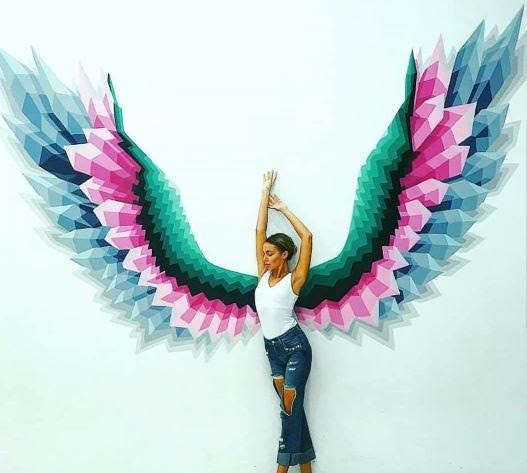
But not touch.
Look but not really experience.
How the world of museums has changed.
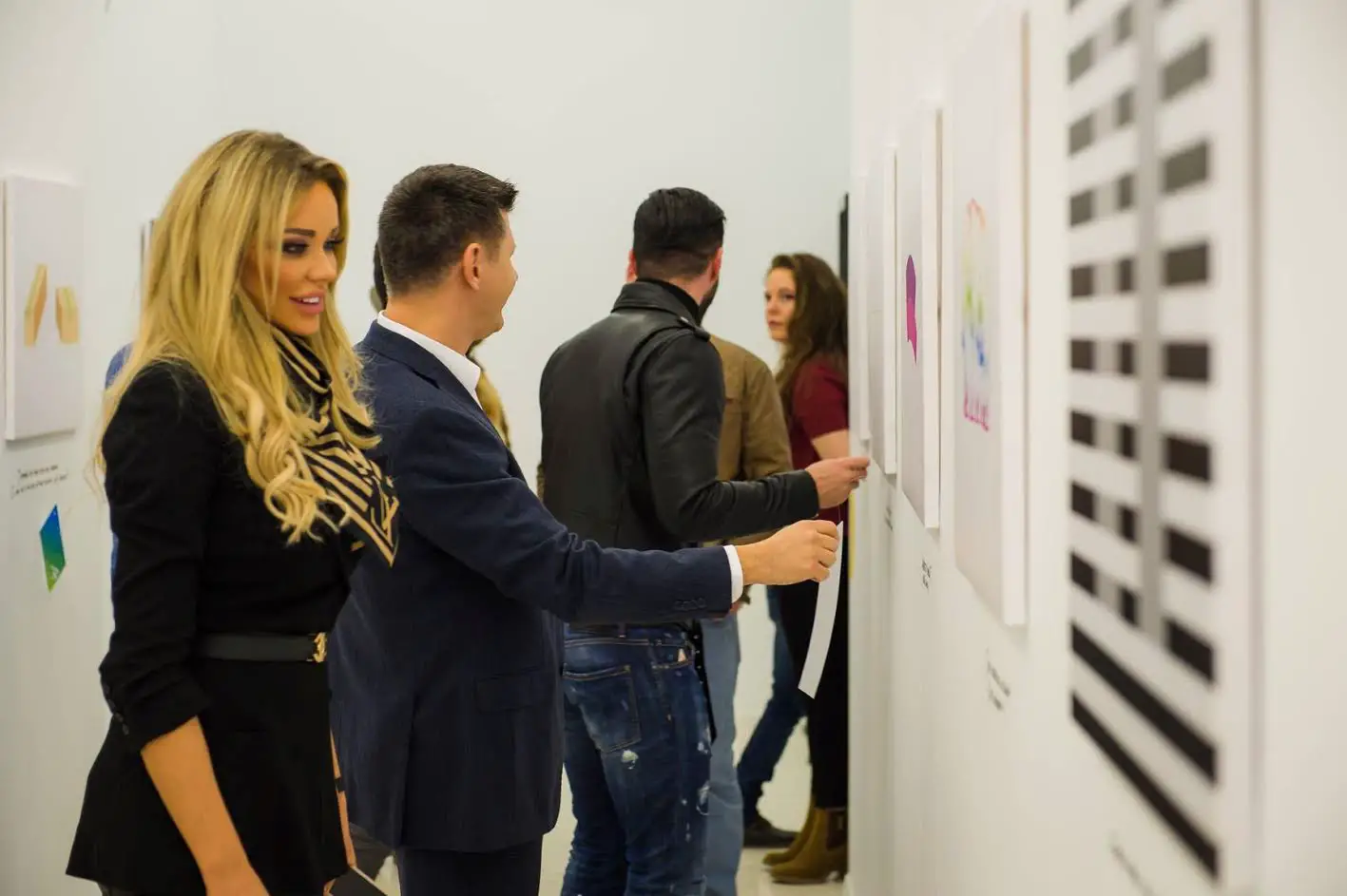
As a father going to modern museums, I am struck by the bigger focus on interaction and experience. And that focus on interaction and experience involves evoking human senses. And there is one museum concept which takes this to a higher level.
Its name, appropriately enough, is the Museum of Senses.
Born in Croatia and Slovenia with three founding partners (two Croatian, one Slovenian), the Museum of Senses blends the concepts of museum visiting and edutainment into a sensual experience quite unlike any other. With six distinct sections dedicated to the six senses of sight, sound, smell, touch, taste, and balance, the Museum of Senses provides an engaging hands-on museum experience that this former child could only dream of.
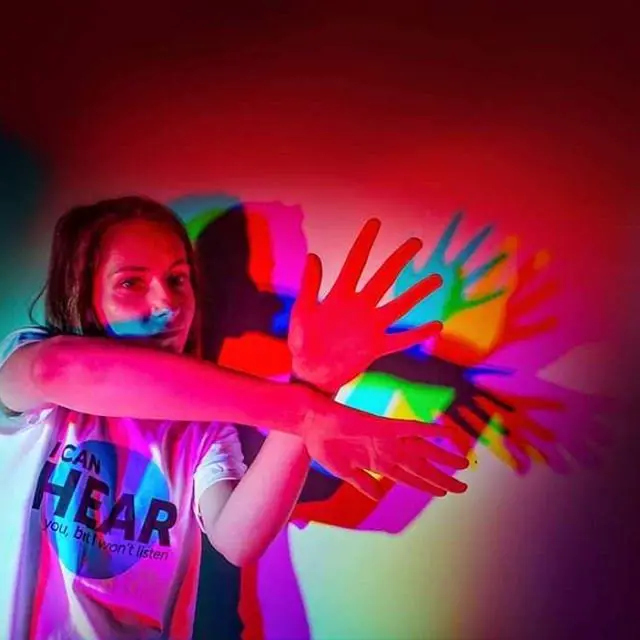
Each of the senses is associated with one of the leading colours. Colours through the zones appear in the form of light, illustration, elements of visual communication and by exhibits themselves.
By exploring their senses, visitors not only enjoy themselves, but also learn something new about their basic senses, while being tested by the power of the mind when confronted by an array of sensual concepts.
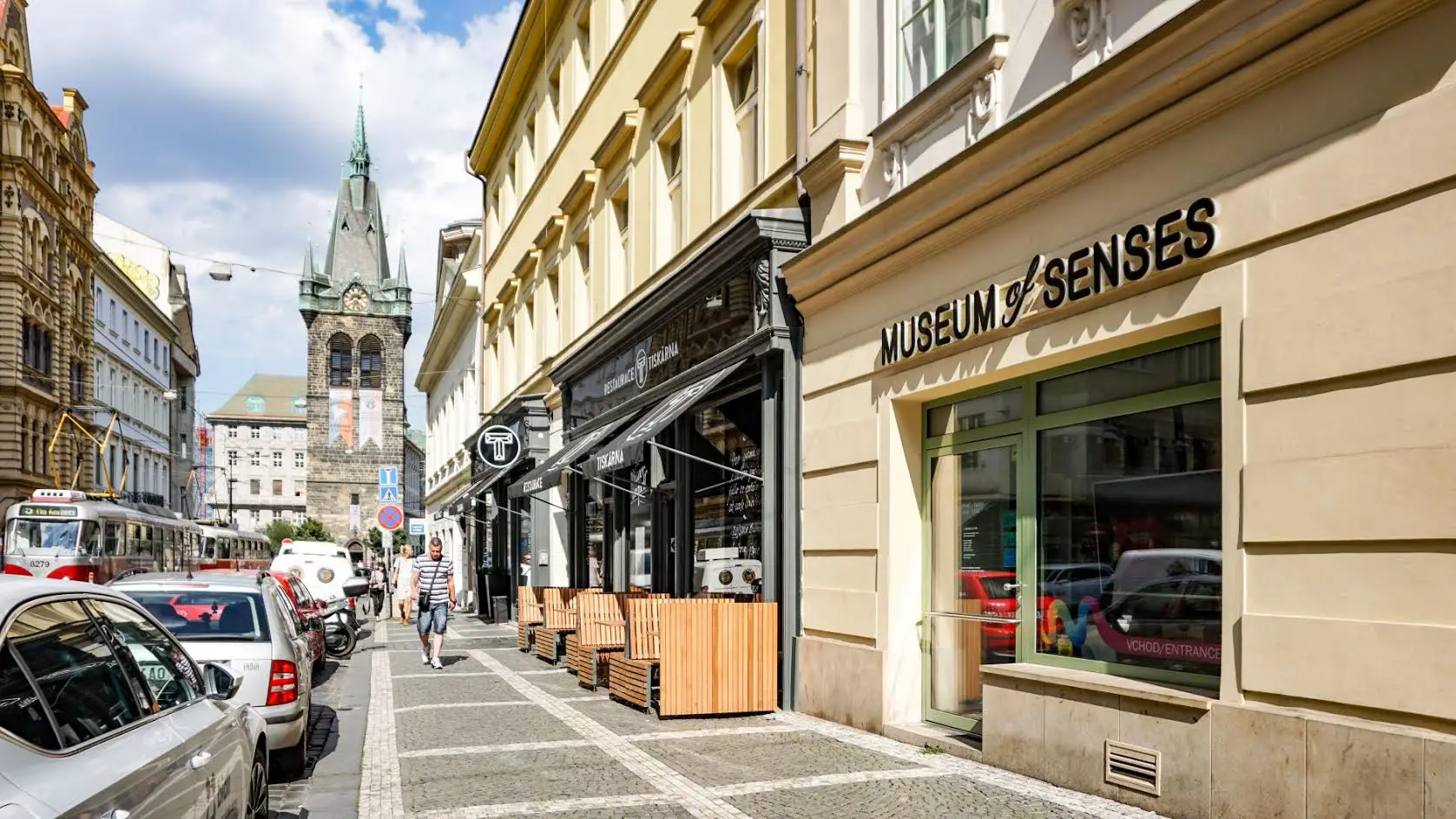
The first Museum of Senses opened in Prague in 2017, followed by Bucharest in 2018. They were immediately both popular and profitable, as well as attracting industry recognition for quality. In 2020, for example, the Prague and Bucharest museums received the TripAdvisor Best of the Best Award, which is awarded to the best in the category based on an algorithm which includes ratings and reviews.
The challenge soon emerged as to how to most effectively expand the museum concept to other parts of Europe and beyond. The answer was a relatively new concept to the museum industry, but one which is growing in popularity – franchising.

The Guggenheim Museum, which opened in 1997, was the first to experiment with the concept of museum franchising in locations such as London and Dubai, but in recent years, the concept has expanded across the museum sector, with Croatia already providing two successful models from illusions to broken relationships.
As with most things on the planet, the pandemic put those expansion plans on hold, but it also created a huge opportunity. With 2021 hosting a (hopefully) post-pandemic world, the world has changed, and the franchising conditions for the resolution of the Museum of Senses plan are looking more favourable than ever.
There are several reasons for this. Reduced rents in a remote working world, as well as a willing workforce in a global economic downturn, will have a positive effect on the bottom line. But research has also shown that one of the first sectors which will return to the 'old normal' is the edutainment and entertainment sector. People want to break free of the confinement of the last twelve months and have fun.
And fun is what the Museum of Senses offers in abundance. With a primary target group of millennials, followed by a secondary target of young families and teenagers, the Museum of Senses concept is appealing to a diverse audience, both local and tourist. Exhibits are introduced in a fun but educational way, with a sensual experience to define them.
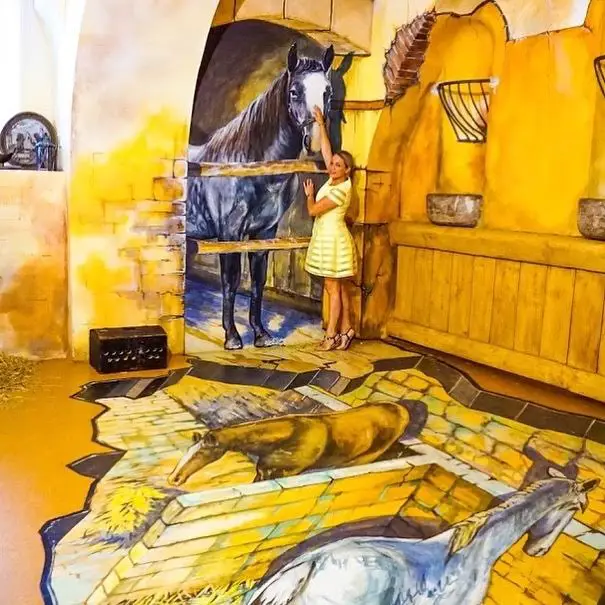
A key unique selling point of the Museum of Senses is the way it embraces local culture and traditions into its exhibits, thereby making each location unique. For example, one museum location is located in a former stables 150 years ago, and so there is a balance feature with artwork to reflect the historical reality.
Museum of Senses is based on five key concepts: interactive engagement in the exploring of the six senses; design and concept reduced to a basic level to reach the widest possible audience; visual design, enticing enough for social media promotion and sharing; that focus on local culture to develop a unique experience; and a flexible approach to branding and commercial partners, who can be brought into be a part of an exhibition (examples being Skittles, Coca Cola and Huawei), rather than remaining a mere sponsor.
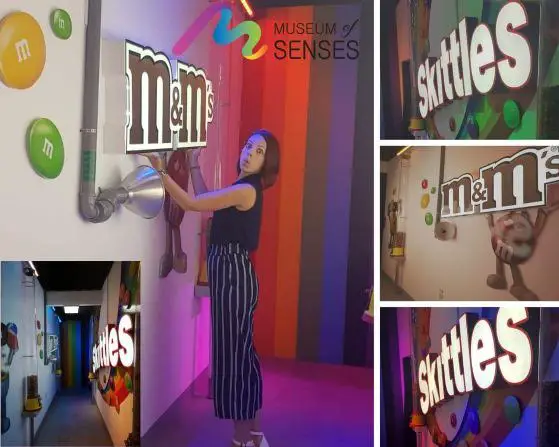
New franchises and partnerships are also undergoing due diligence in several cities worldwide.
According to Dejan Grbic, managing partner of Museum of Senses, speaking at the TGFM webinar “Emerging Franchise Brands for the New Year” last month (see the video below – Grbic's presentation starts at 17:30), the Museum of Senses franchise is an excellent opportunity, and the timing could not be better.
(Museum of Senses franchising presentation starts at 17:30)
The flexible franchise model involves light management after the initial focus of expert assistance in location sourcing, design and set up. Standard museums need an area of 500m2, but the concept is flexible enough to work in areas as small as 300m2 and up to 1000m2. The pandemic spawned an additional concept which works well in shopping malls, for example – the pop-up temporary museum.
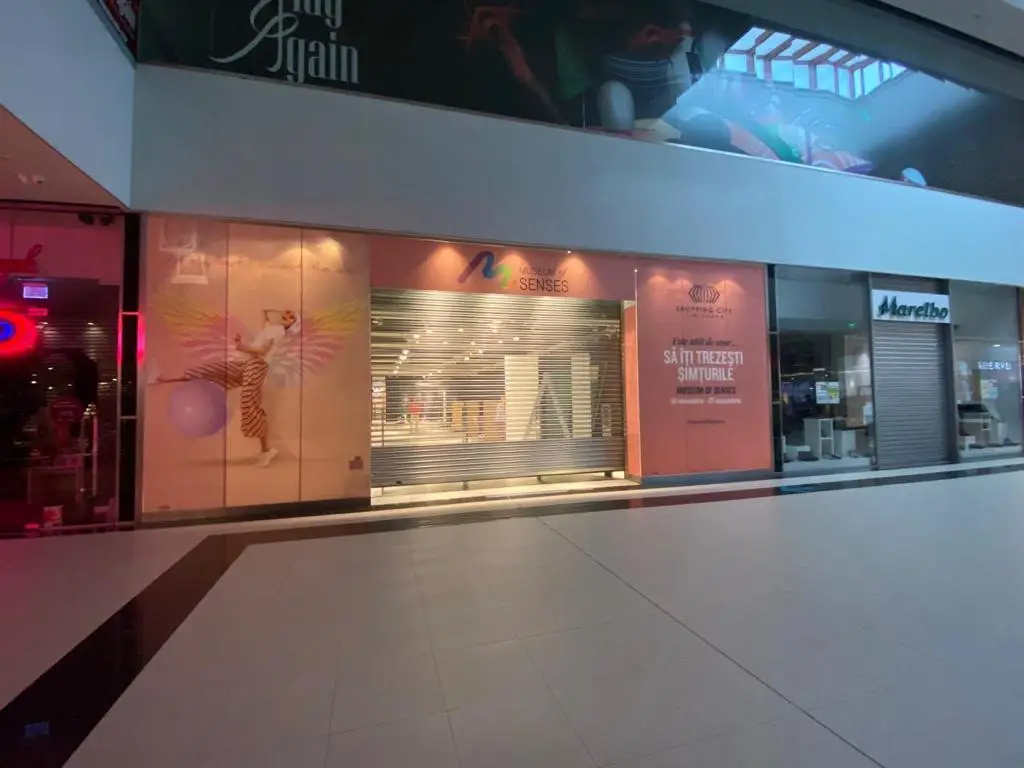
Revenues for a standard location are in the region for US$1 million a year ($1.5 million for a more prime location), based on a ticket price of US$10, with return on investment around 6-12 months.
Grbic says that the concept works for a number of reasons. Its unique local approach to its exhibits sets it apart; there is a set of diversified sales channels, which appeal to both local and tourist; the wider net of tourism and the hospitality sector, schools, even birthday parties; lots of free media and PR in the form of social media, TripAdvisor and similar platforms; and that flexible, light management mentioned above.
The concept of edutainment in the museum industry is still fairly new, and the fresh approach of Museum of Senses to the museum market is certainly fresh and on the path to success.
I look back to the museum child that I was, and I wish them every success and with a little envy. Back when I was a child, the only sense that I could use at a museum was sight. How inspiring it must be to visit a museum and test the limited of sight, sound, touch, hearing, taste and balance.
For more information about Museum of Senses, either as a visitor or a potential franchisee or partnership, visit the official website here.
STA, 3 March 2021 - Slovenia will roll out biometric identity cards in line with legislation passed by the National Assembly on Wednesday that implements an EU requirement that all member states should start issuing biometric identity cards by August 2021.
Under the amendments to the act on identity cards, the new card will have a chip containing images of two fingerprints and a photo of the holder.
The biometric data on the chip can only be used to verify the authenticity of the card, or the identity of the holder when they cross the border.
Since the EU regulation makes it possible to use identity cards as a means of electronic identification, the new cards will contain electronic identification and a digital signature certificate.
The card will be merely the medium for these features, their practical use will be determined by the Public Administration Ministry in a separate law.
Deputy groups welcomed the legislation as a step forward in digitalisation, noting that it will be more versatile and will facilitate e-government and e-commerce services.
Slovenia has had biometric passports since 2006 and the main features of the amendments follow the provisions of the act on passports.
STA, 3 March 2021 - The National Assembly passed on Wednesday legislation designed to end fictitious registrations of residence, a widespread practice uncovered in recent months.
The amendments to the residence registration act will crack down on fictitious registrations at addresses that are not residential, or residential addresses where the size of the living quarters clearly precludes the registration of a large number of people.
This will be done in several ways, for example with the requirement that individuals may register residence only at the administrative unit where the address is located.
At each registration, the public official conducting the procedure will have to check the actual use of the building and the number of persons already registered at the address. There will be a minimum per person requirement in terms of square metres.
If the conditions for registration are not satisfied, officials will be able to reject such applications using a simplified procedure.
The legislation comes after a series of reports showed there were apartments and sometimes even commercial premises where dozens and sometimes over a hundred persons, mostly foreigners, were registered.
MPs also rejected a separate amendment, proposed by the opposition National Party (SNS) and adopted by the Home Policy Committee, that would have required individuals to provide information about their ethnicity and religious affiliation when reporting their residence.
The provision, criticised by the Office of the Information Commissioner as discriminatory, was overridden with amendments tabled by both the coalition Modern Centre Party (SMC) and New Slovenia (NSi), and the opposition Left.
STA, 3 March 2021 - Slovenia's Nika Križnar won the bronze medal in the women's large hill competition at the Nordic World Ski Championships in Germany's Oberstdorf on Wednesday in what is the fourth medal for Slovenian ski jumpers there.
Križnar, who already has silver in the women's team event, scored 287.1 points from the two jumps, falling behind the gold-medallist Maren Lundby of Norway (296.6) and the silver-medallist Sara Takanashi of Japan (287,9).
Slovenia's Ema Klinec, who won gold on the normal hill a week ago, was sixth with 273.3 points.
This is a fourth medal for Slovenian ski jumpers in Oberstdorf and a sixth medal overall, which puts Slovenia fourth overall in the nations' medal count.
Check the date at the top of the page, and you can find all the "morning headlines" stories here. You can also follow us on Facebook and get all the news in your feed.
This summary is provided by the STA:
Rest of secondary school students returning to classrooms on Monday
LJUBLJANA - All secondary school students who have been learning remotely will return to in-person teaching on Monday, the government decided as it conducted its weekly review of coronavirus restrictions. The change comes after schools reopened in mid-February, but only final-year secondary students returned to classrooms to prepare for school-leaving exams. Starting next week, primary school students in grades six to nine will have to wear masks at all time in class. - More on this story
Daily coronavirus count climbs again to 1,209
LJUBLJANA - Slovenia's daily coronavirus case count rose to 1,209 on Tuesday, an increase of more than 10% from the same day a week ago, as the 7-day average of new cases increased to 761, having already dropped to 736 the day before, data released by the government show. Eleven patients with Covid-19 died. The number of patients hospitalised with Covid-19 inched down further to 516 after 54 patients were discharged yesterday. The number of patients in intensive care units dropped by two to 82.
Vaccination of teachers to start next week
LJUBLJANA - Slovenia is planning to start mass vaccination of teachers against Covid-19 next week, Jelko Kacin, the coordinator for the logistics of mass vaccination, announced as he visited a vaccination point in Ljubljana. If everything goes according to plan, Slovenia could administer about 240,000 doses of Covid-19 vaccines in March, which is about half the capacity, said Kacin, adding that between 500,000 and 600,000 people could be inoculated a month or roughly 30,000 per work day.
Tomc, Zver, Bogovič did not back changes to EPP rules of procedures
BRUSSELS, Belgium - Three of Slovenia's four MEPs from the European People's Party (EPP) did not back changes to the rules of procedure allowing the European People's Party (EPP) to suspend or exclude a member party from its ranks. Ljudmila Novak, the fourth Slovenian EPP MEP, voted for the changes, having been one of its proponents. The overhauled internal rules are seen as paving the way to exclude Hungarian PM Viktor Orban's Fidesz, which already announced its quitting the EPP after the vote.
Massive investigation into money laundering scheme
MARIBOR - A total of 28 house searches were carried out by the National Bureau of Investigation (NBI) in relation to a suspected money laundering scheme worth millions of euros involving shell companies and the withdrawal of large amounts of cash from bank accounts. It unofficially involves Slovenian tax advisor Rok Snežič and Bosnian citizen Dijana Đuđić. In addition to Slovenia, house searches were also carried out in Croatia and Bosnia-Herzegovina as the scheme is being investigated that allegedly involved a number of Bosnian citizens, with Snežič as the mastermind.
Slovenia sees decline in joblessness in February
LJUBLJANA - After three months of growth, Slovenia's registered unemployment total dropped by 3.8% in February to 88,051. Still, the number of people registered with the Employment Service as being out of a job is 13.6% higher than the same month a year ago. On another positive note, the number of newly registered unemployed fell month-on-month as well as year-on-year as the number of those who found a job increased.
US imposes anti-dumping duty on Slovenian aluminium
WASHINGTON, US - Slovenia is one of the countries subject to new US anti-dumping duty on common alloy aluminium sheet imports under a decision taken by the US Department of Commerce on Tuesday, with the dumping rate for the country set at 13.43%. Talum, the Kidričevo-based aluminium manufacturer, told the STA they were not exporting to the US so the new duty would not affect them directly, but it would have an indirect impact, as such measures increased risks for the whole European economy.
Slovenia's GDP measured in PPS nearing 90% of EU average
LJUBLJANA - Slovenia's per capita GDP measured in purchasing power standard (PPS) reached 89% of the EU's average in 2019, an improvement of two points from 2018. Western Slovenia reached 106% of the average, whereas the country's other cohesion region, Eastern Slovenia, only reached 73%, the latest Eurostat data show. Having posted solid economic growth in 2014-2019, Slovenia's GDP gradually converged towards the EU average in this period after its gap had been widening for several years.
TEŠ decides against waste co-incineration
ŠOŠTANJ - TEŠ has decided not to introduce co-incineration of non-hazardous waste after the Šoštanj city council voted against it, the Šoštanj-based coal-fired power station told the STA. It will also discontinue a procedure to have its environmental permit changed to allow co-incineration. The Šoštanj council voted against co-incineration as the first of three neighbouring municipalities in January, arguing emissions would be its most problematic aspect.
Slovenia pledges guarantee for EIB Pan-European Guarantee Fund
LJUBLJANA - The National Assembly passed legislation enacting Slovenia's EUR 70 million guarantee for the Pan-European Guarantee Fund, a new mechanism of the European Investment Bank (EIB) designed to help business cope with the effects of the coronavirus pandemic. In total, the fund will provide EUR 25 billion in guarantees pledged by EU member states equal to their share of EIB capital.
Legislation adopted to crack down on fictitious residence registrations
LJUBLJANA - The National Assembly passed legislation designed to end fictitious registrations of residence, a widespread practice uncovered in recent months. The amendments to the residence registration act will crack down on fictitious registrations at addresses that are not residential, or residential addresses where the size of the living quarters clearly precludes the registration of a large number of people.
Left's amendments to STA act passed
LJUBLJANA - The National Assembly voted 48:38 in favour of amendments to the act governing the STA that require the STA English Service to report on the work of NGO. The English Service already reports on NGOs, but the law on the STA does not stipulate this as an explicit requirement, even as it includes such a provision for the Slovenian-language service. The amendment was backed by the centre-left opposition, the coalition SMC, and one minority MP.
Majority of news neutral, biased news more anti- than pro-government, survey shows
LJUBLJANA - A survey of ten major news portals in Slovenia in 2020 has shown that the majority of news, except on the portal Nova24TV.si, is unbiased. Among articles that were flagged as biased, those that were critical of the government far outnumbered pro-government reporting. "The majority of the analysed media has a recognizable political and ideological flavour. In general the government is treated in clearly less favourable terms than the opposition, leftist views dominate over rightist views," says the study conducted by the Media Faculty at the end of last year.
10 years since launch of ACER, first EU agency in Slovenia
LJUBLJANA - Today marks ten years since the Agency for the Cooperation of Energy Regulators (ACER) launched its operations in Ljubljana as the first and so far only EU agency based in Slovenia. Focusing on the smooth running of the EU's single electricity and gas market, the agency was established by the EU's third energy package with the goal to prevent monopoly in the sector and help consumers.
Only third of convalescent plasma suitable for Covid-19 treatment
LJUBLJANA - Only a third of plasma from those who recovered from Covid-19 contains sufficient amounts of neutralising antibodies to be used as treatment for Covid-19. The Blood Transfusion Centre said it had taken plasma or blood from 1,800 individuals who recovered from Covid-19 since July 2020. Antibody contents are highest in the blood or plasma of those who suffered stronger symptoms and had donated plasma within four to six weeks after the onset of illness.
Slovenia gets new seismic hazard map
LJUBLJANA - The national Seismology Office has presented a new seismic hazard map for Slovenia. The upgraded danger levels and risk assessment are based on the new findings of the past two decades. Areas with the highest earthquake hazard in Slovenia are the Posavje region in the east, the Novo Mesto area in the south-east, the capital Ljubljana and certain areas in the north-west and west of the country, particularly around Kobarid, Bovec and Idrija.
Križnar wins bronze in women's large hill at Nordic worlds
OBERSTDORF, Germany - Slovenia's Nika Križnar won the bronze medal in the women's large hill competition at the Nordic World Ski Championships in what is the fourth medal for Slovenian ski jumpers there. Križnar, who already has silver in the women's team event, scored 287.1 points from the two jumps, falling behind the gold-medallist Maren Lundby of Norway (296.6) and the silver-medallist Sara Takanashi of Japan (287,9).
If you're learning Slovenian then you can find all our dual texts here
STA, 3 March 2021 - All secondary school students who have been learning remotely will return to in-person teaching on Monday, while primary school students in grades six to nine will have to wear masks at all time in class, the government decided as it conducted its weekly review of coronavirus restrictions.
The change for secondary school students comes after schools reopened in mid-February, but only final-year secondary students returned to classrooms. They were given priority because they have to prepare for school-leaving exams.
Secondary school students have been pushing for a return to classrooms and, despite the ban on gatherings of over 10 people, in early February they staged rallies to demand schools reopen.
In primary schools all students returned to class. They have to wear face masks while mixing in common areas but so far they have not had to wear masks in class. Students in grades from six to nine will now have to wear masks at all times.
The move was proposed by the Health Ministry's Covid-19 advisory group.
Teachers have to wear masks at all times and they must get tested for coronavirus once a week, a requirement that remains unchanged.
All other restrictions remain in place as well, including the 9pm-6am curfew, restrictions on gatherings, and the closure of bars and hospitality establishments.
With the exception of the coastal Obalno-Kraška region, Slovenia is currently in the orange tier of restrictions. New cases and hospital numbers had been falling steadily, but cases in particular have plateaued and even increased in some parts of the country.
STA, 3 March 2021 - A total of 28 house searches were carried out in Slovenia Wednesday by the National Bureau of Investigation (NBI) in relation to a suspected money laundering scheme worth millions of euros. It unofficially involves tax advisor Rok Snežič and Bosnian citizen Dijana Đuđić.
In addition to Slovenia, house searches were also carried out in Croatia and Bosnia-Herzegovina as the scheme is being investigated that allegedly involved a number of Bosnian citizens, with Slovenian Rok Snežič as the mastermind.
Unofficial information by POP TV says that he was helped in the money laundering scheme by Dijana Đuđić, a Bosnian citizen known for a controversial EUR 450,000 2017 loan to the Democratic Party (SDS) of Janez Janša, currently the ruling party in Slovenia.
The Bosnian authorities are conducting a parallel organised crime and money laundering investigation, which targets Đuđić and the persons connected with her in Bosnia-Herzegovina. A house search was reportedly carried out today at her home.
Snežič is suspected of having organised a group of citizens of Bosnia-Herzegovina who opened bank accounts in Slovenia, Austria and Hungary, on which they received money as payment for fictitious services performed by shell corporations.
They would then withdraw the money from the banks in cash, and Snežič is suspected of taking Đuđić personally from Bosnia-Herzegovina to Slovenia several times to withdraw cash there.
Unofficially, the illegal transactions worth millions of euros also involved the companies owned by Roman and Dominik Vuk, the brother and son of Miran Vuk, the former mayor of Zavrč. They used to be provided tax advice services by Snežič.
The latter is suspected of giving instructions to the persons involved in the money laundering scheme and organising the chain of financial transactions. Điđić used to make cash withdrawals of up to EUR 400,000 at once.
The financial transactions made by Đuđić raised red flags years ago at the Slovenian Office for Money Laundering Prevention, which suspected that it was money laundering.
Acting NBI director Petra Grah Lazar told the press today that eight house searches were still under way. She added that the NBI had launched the investigation in 2018 based on various tips. Foreign authorities are also involved.
The Slovenian and foreign suspects are suspected of committing several criminal acts between 2016 and 2018, including the issuing of unwarranted receipts for various services to receive a total of EUR 7 million in illegal gains, Grah Lazar said without naming any suspects or other details of the investigation.
Asked whether the EUR 450,000 loan from Đuđić to the SDS, which was later returned, was part of these transactions, she said that she was not able to provide concrete information but noted that no political party was being investigated.
A total of 19 persons have been made suspects as part of the investigation, and neither of them have been detained, the police also said.
STA, 3 March 2021 - Slovenia's per capita GDP measured in purchasing power standard (PPS) reached 89% of the EU's average in 2019, an improvement of two points from 2018. Western Slovenia reached 106% of the average, whereas the country's other cohesion region, Eastern Slovenia, only reached 73%, the latest Eurostat data show.
Having posted solid economic growth in 2014-2019, Slovenia's GDP gradually converged towards the EU average in this period after its gap had been widening for several years. The figure rose from 83% in 2014 to 89% in 2019.
The average development gap between the country's two cohesion regions meanwhile remained almost unchanged in 2019 over 2018 after it had been widening for several years. In both Western and Eastern Slovenia it decreased by one percentage point.
Eurostat data shows that Slovenia's GDP per capita reached EUR 23,200 in 2019, which translated into 27,700 PPS. Western Slovenia meanwhile generated EUR 27,600 or 33,000 PPS and Eastern Slovenia EUR 19,100 or 22,900 PPS.
There was a considerable variation both between and within EU member states in 2019: Bulgaria's North-West region and France's overseas region Mayotte did worst at 32% of the EU's average, while with the UK excluded, Luxembourg did best with 260%.
STA, 2 March 2021 - A round table debate was critical of the government's measures to stem the Covid-19 epidemic and the manner in which it communicates with the public. Warnings could be heard about the state of human rights eroding under the current government and there were calls for citizens not to be silent about such developments.
Among others, Monday's debate hosted by the Coordination of Patriotic and Veteran Organisations featured lawyer Nataša Pirc Musar, the former information commissioner, who is concerned about the "unbearable erosion of law" during the current government.
She also noted the easiness with which measures are being taken without due deliberation, and is especially bothered by the "true hooliganism" of the government adopting regulations for which is its clear in advance that they are unconstitutional.
Pirc Musar has been noticing over the past year "how the right political pole has become the fiercest advocate of the freedom of expression", while forgetting about the remaining human rights. The former is limited with other rights, including with the right to privacy.
According to her, the principle of proportionality should be followed under which certain human rights may be limited in a democracy under certain conditions. She thus called on citizens not to be quiet as "this is the only was to prevent the terrifying erosion of human rights and law as a whole".
Slovenia's former Ambassador to Switzerland Marta Kos talked about the government's communication during the epidemic, which according to her was unified and efficient in the first wave, while inadequate in the second wave.
For this reason, the measures have not had the effect that they could have, Kos said, noting that the government had made three major mistakes. "Instead of building trust, it is undermining it," she said about the first mistake.
The second mistake is the "constant persecution of the media" that could have severe long-term consequences. "Where there is no free media, there is no democratic society," she said, adding that the government was behaving "indecently" when it came to the financing of the Slovenian Press Agency (STA).
Kos mentioned as the third mistake the "inappropriate communication with which the government is undermining Slovenia's reputation in the world". She is concerned that Slovenia might have lost a lot of credibility in the international arena in recent months.
Former Health Minister Dušan Keber pointed to what he believes are mistakes in decisions to stem the epidemic that are the consequence of a misplaced theory about the spreading of the novel coronavirus, which he believes is transferred aerogenically.
On the other hand, all measures and instructions are based on the theory that the virus is spread by droplets, and Keber instead proposes that the main measure should be regular ventilation of public and private spaces.
This should be discussed as frequently as wearing face masks and hand sanitation, and citizens should also be encouraged to wear thicker masks that stop aerosols. All measures for outdoors could practically be dropped, he said.
STA, 3 March 2021 - The national Seismology Office has presented a new seismic hazard map for Slovenia, taking into account the latest seismic and geo-tectonic data. The upgraded danger levels and risk assessment are based on the new findings of the past two decades.
The old seismic hazard map dates back to 2001 and the new one will step into force when the changes to the earthquake resistant construction legislation are passed.
Based on the new earthquake risk assessment, engineers will establish whether national building codes in line with the Eurocode 8 seismic hazard zoning standards need to be changed.
The new map shows peak ground acceleration as well as spectral acceleration to include all possible building frequencies.
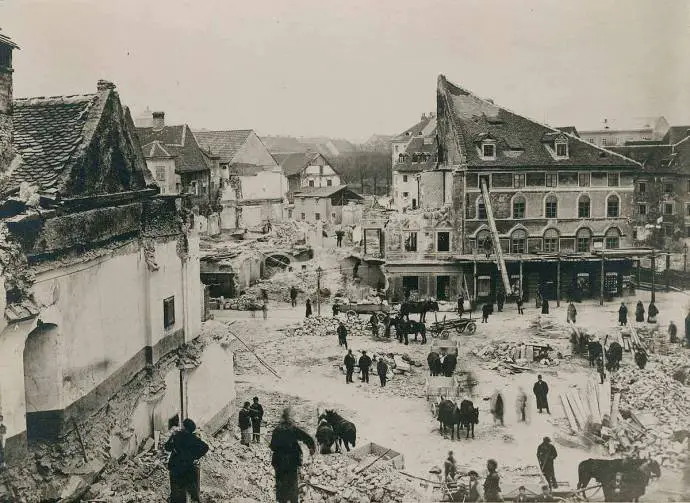
Related: Old Photos - Ljubljana After the 1895 Earthquake
Seismic hazard levels are assessed for firm ground sites using earthquake sources probability assessment and taking into account the expected lifespan of average buildings.
The upgraded version was drawn up based on the latest data used for the new European seismic hazard map and specific regional circumstances. The list of earthquakes in the country and its vicinity has been brought up to date as well.
Active faults or ground breaks and their sources, defined by the Geological Survey of Slovenia, have been included in the map for the first time ever, meaning risk levels are now assessed not just on the basis of previous quakes but also on potential fault hotspots.
Areas with the highest earthquake hazard in Slovenia are the Posavje region in the east, the Novo Mesto area in the south-east, the capital Ljubljana and certain areas in the north-west and west of the country, particularly the Kobarid, Bovec and Idrija areas. On the other hand, the coast, the Maribor area and the north-east are safest.
If you’d like to keep up-to-date with the latest in seismic activity as it relates to Slovenia, there’s the government website (in Slovene) here, while an international site, in English and searchable by location, is here.
Check the date at the top of the page, and you can find all the "morning headlines" stories here. You can also follow us on Facebook and get all the news in your feed.
This summary is provided by the STA:
Govt plans to set up 61 vaccination centres
LJUBLJANA - The government adopted a revised vaccination strategy on Monday, envisaging 61 vaccination centres, including 13 in hospitals. Presenting the changes, Health Minister Janez Poklukar said on Tuesday priority groups remain the same, with health workers in top tier, followed by people over 80, 75 and 70, and then vulnerable patients with chronic conditions. Next come diplomats, Foreign Ministry officials and officials from other ministries travelling to other EU countries for the upcoming Slovenia's presidency, followed by foreign diplomats, and soldiers on missions abroad.
729 coronavirus cases on Monday as 7-day average drops
LJUBLJANA - Slovenia recorded 729 coronavirus cases amid heavy testing on Monday, 19% fewer than the same day a week ago, to push the 7-day average of new cases down to 736 from 768 the day before, data from the government show. Nine patients with Covid-19 died. The latest cases were confirmed from 4,487 PCR tests as a record 48,003 rapid antigen tests were performed. Covid-19 hospitalisations dropped to 528 and intensive care cases to 84.
New Covid-19 advisory team appointed at Health Ministry
LJUBLJANA - Health Minister Janez Poklukar appointed a new medical taskforce that advises the ministry on measures to contain Covid-19. It will be headed by Mateja Logar, an infections diseases specialist at the UKC Ljubljana's clinic of communicable diseases who has so far been a member of the team. She succeeds Bojana Beović, who resigned as she took over as new head of the Medical Chamber, but is staying on as a member. The country's chief epidemiologist Mario Fafangel returns to the team after quitting in December.
Nigerian Covid-19 strain found in Slovenia, POP TV reports
LJUBLJANA - Following the identification of the UK and South African variants in Slovenia, the Nigerian strain of coronavirus has also been confirmed in the country, private broadcaster POP TV reported, adding that seven cases had been detected so far. Health Minister Janez Poklukar told a press briefing earlier in the day that 62 cases of the UK variant and a single case of the South African variant had been confirmed, adding he knew nothing of the presence of the Nigerian strain. The official report on the presence of various coronavirus mutations circulating in Slovenia is expected tomorrow.
Slovenia so far used 76% of vaccines delivered, ECDC data show
BRUSSELS, Belgium/LJUBLJANA - Data from the European Centre for Disease Prevention and Control (ECDC) suggest Slovenia has so far received almost 190,000 shots of Civid-19 vaccines, but used only 144,000 shots of the vaccine, or 76.1%. The average for EU members is around 70%. Slovenia's NIJZ meanwhile said the actual figure was higher - at over 174,000. It explained the gap resulted from the fact that Slovenia sent its figures to the ECDC once a week for the week before, so the ECDC figures were not entirely accurate.
Janša, Simoniti accept invitation to EP media hearing, insist on in-person format
LJUBLJANA - PM Janez Janša and Culture Minister Vasko Simoniti accept an invitation to an exchange of views on Slovenian media with an European Parliament's monitoring group. However the discussion should be held in face-to-face format in the European Parliament, it should be public and there should be enough time to comprehensively present all the discussed topics, reads a post published on the government's website. The post also says the group's head, Dutch MEP Sophie in 't Veld (Renew), is invited to join an EU fact-finding mission that Janša would like to visit Slovenia.
Pahor to visit Bosnia-Herzegovina on Friday
LJUBLJANA - President Borut Pahor will visit to Bosnia-Herzegovina on Friday to meet members of the country's presidency. As the supreme commander of the Slovenian Armed Forces, Pahor will also visit the contingent of the Slovenian army serving in the military base Butmir. He wil be accompanied by Defence Minister Matej Tonin. The talks with the presidency will focus on bilateral relations and regional cooperation ahead of the Brdo-Brijuni Process summit in Slovenia in April.
Foreign policy council discusses upgrading foreign policy strategy
LJUBLJANA - A new line-up of the Strategic Council for Foreign Policy, led by Foreign Minister Anže Logar, met for its maiden session, discussing upgrading the country's foreign policy strategy, the Foreign Ministry said. After the first strategy was adopted in 1999, parliament passed a declaration on Slovenia's foreign policy and the government adopted an accompanying strategic document in mid-2015, which will now be "refreshed". Proposals are currently being drawn up at the ministry to "refresh" individual parts of the strategy.
C-bank says measures helping recovery at expense of fiscal situation
LJUBLJANA - The Slovenian central bank says the anti-crisis measures have contributed to the economic recovery and to keeping the country's potential afloat, albeit at the expense of public finance situation. A gradual approach and targeted withdrawal of measures will be needed so that the economy is not exposed again to negative shocks. Such an approach will be needed as the epidemic is expected to slow down, Banka Slovenije adds in its latest review of macroeconomic trends.
Centre-left seeks referendum on demographic fund bill
LJUBLJANA - Four centre-left opposition parties filed a proposal for the National Assembly to call a consultative referendum on the government-sponsored bill on the National Demographic Fund. The Marjan Šarec List (LMŠ), Social Democrats (SD), Left and the Alenka Bratušek Party (SAB) argue the bill would give the government centralised control over ownership and management of EUR 8.6 billion in state assets. Before passing the bill, the National Assembly will need to decide on the referendum initiative. The result of such a referendum would not be binding on the legislators.
Curfew, gatherings restrictions challenged at Constitutional Court
LJUBLJANA - Two applicants have asked the Constitutional Court for a review of the government decree which imposes a night-time curfew and restricts public gatherings, a motion that is supported by several NGOs. The applicants, who wish to remain anonymous, claim that the government has not based its decisions on expert advice and scientific findings. They say freedom of movement and the right to public assembly may only be restricted based on a stringent test of proportionality of the measures.
Opposition rebukes justice minister over EU prosecutors appointment
LJUBLJANA - Justice Minister Lilijana Kozlovič was urged to step down as the opposition is unhappy with her handling of the appointment of Slovenia's two members of the European Public Prosecutor's Office. The development comes after Kozlovič of the junior coalition SMC said her ministry had asked for the proposal of two prosecutors to be put on the government's agenda several times, but received no reply. This was after the EU's justice commissioner urged the government to swiftly appoint the country's two European delegated prosecutors so that the newly-established European Public Prosecutor's Office could start operating in Slovenia on 1 March as planned.
Funds approved to promote Italian minority's economic activities
LJUBLJANA/KOPER - The government approved EUR 1.4 million for promotion of the economic activity of the Italian minority in Slovenia in 2021-2024 on Monday. The goal is to improve the community's economic potential by nurturing the growth of existing and incorporation of new companies. Alberto Scheriani, who heads the minority's main representative body, told the STA this was the second such multi-year programme.
Hi-tech Instrumentation Technologies acquired by ARX Equity Partners
SOLKAN - Slovenian company Instrumentation Technologies, a leading global provider of advanced instrumentation in the field of basic particles accelerators and proton therapy, has been acquired by ARX Equity Partners, a private equity group headquartered in Prague, but the acquisition price has not been disclosed. As part of the deal, ARX intends to further Instrumentation Technologies' growth, and keep the current management team and workforce totalling 43 people.
Wood offered as major contributor in reducing CO2 emissions
LJUBLJANA - An online conference on the use of wood in reducing CO2 emissions heard that wood is Slovenia's strategic asset and a material of the future, including from the environmental aspect. One cubic metre of wood products equals a two-tonnes reduction of CO2 emissions into the atmosphere, Economy Minister Zdravko Počivalšek noted. Slovenia plans to increase domestic wood processing to three million cubic metres, capturing around 7.5 million tonnes of CO2 in wood products.
Triglav Group's premiums up 4%, net profit down 12% in 2020
LJUBLJANA - The Triglav insurance group recorded a growth in collected premiums for the sixth year in a row in 2020, as the figure rose by 4% to EUR 1.23 billion. Net profit was meanwhile down 12% compared to 2019 to EUR 73.7 million, shows the unaudited annual report. The value of the investment portfolio was up 5% to slightly under EUR 3.5 billion. The market leader in the Adriatic region increased its market share in Slovenia by 0.4 of a percentage point to 36.5%.
T-2 suing Telekom Slovenije for EUR 50m
LJUBLJANA - Telecoms incumbent Telekom Slovenije is being sued by the telecommunications company T-2 for around EUR 50 million for the damage that the latter allegedly suffered between September 2018 and July 2020, Telekom Slovenije said, while not revealing the way in which the alleged damage had been incurred. The company settled with T-2 in September 2018 over the abuse of predominant market position, with T-2 seeking EUR 129.56 million in damages from the national telco. The amount of the settlement was not revealed.
Roads claimed record-low number of casualties in 2020
LJUBLJANA - Slovenia saw a record-low number of traffic accident casualties and injuries last year, with December being the first month without any casualties since 1954. Nevertheless, the main causes remain drunk driving, speeding and right-of-way violations. Nearly 15,000 road accidents were recorded in Slovenia last year, a drop of 21% over 2019, data from the Traffic Safety Agency show. Total casualty toll reached 80, 22% below the 2019 figure.
Travellers using fake negative tests to avoid quarantine
LJUBLJANA - Police detect daily about a dozen falsified negative coronavirus tests with which passengers want to avoid quarantine upon entry into Slovenia, the General Police Department said, noting that using a fake test amounts to document falsification, a crime which carries a prison sentence of up to three years. An increase in the number of fake PCR tests at the border with Croatia presented by passengers from Bosnia-Herzegovina and Serbia was detected in January. Health Minister Janez Poklukar said the ministry was working on solutions alongside the Interior Ministry and epidemiologists.
Nadyrshina and Karl crème de la crème in snowboard parallel slalom
ZREČE - Russia's Sofia Nadyrshina and Austria's Benjamin Karl won gold in the women's and men's parallel slalom, respectively, at the Snowboarding World Championships in Rogla, Slovenia. Among female snowboarders, Germany's Ramona Hofmeister won silver, whereas second place went to Austrian Andreas Prommegger in the men's competition. Selina Jörg of Germany and Dmitry Loginov of Russia won bronze.
If you're learning Slovenian then you can find all our dual texts here




